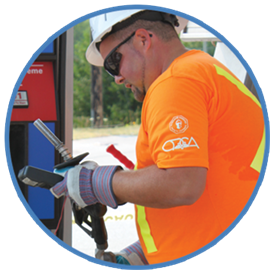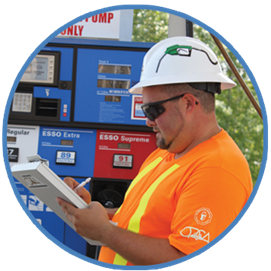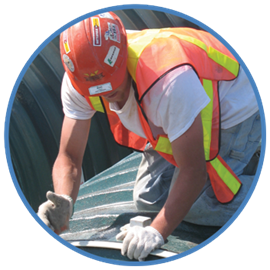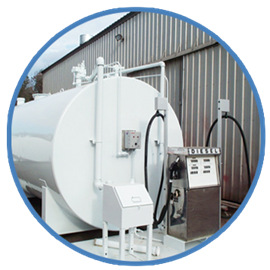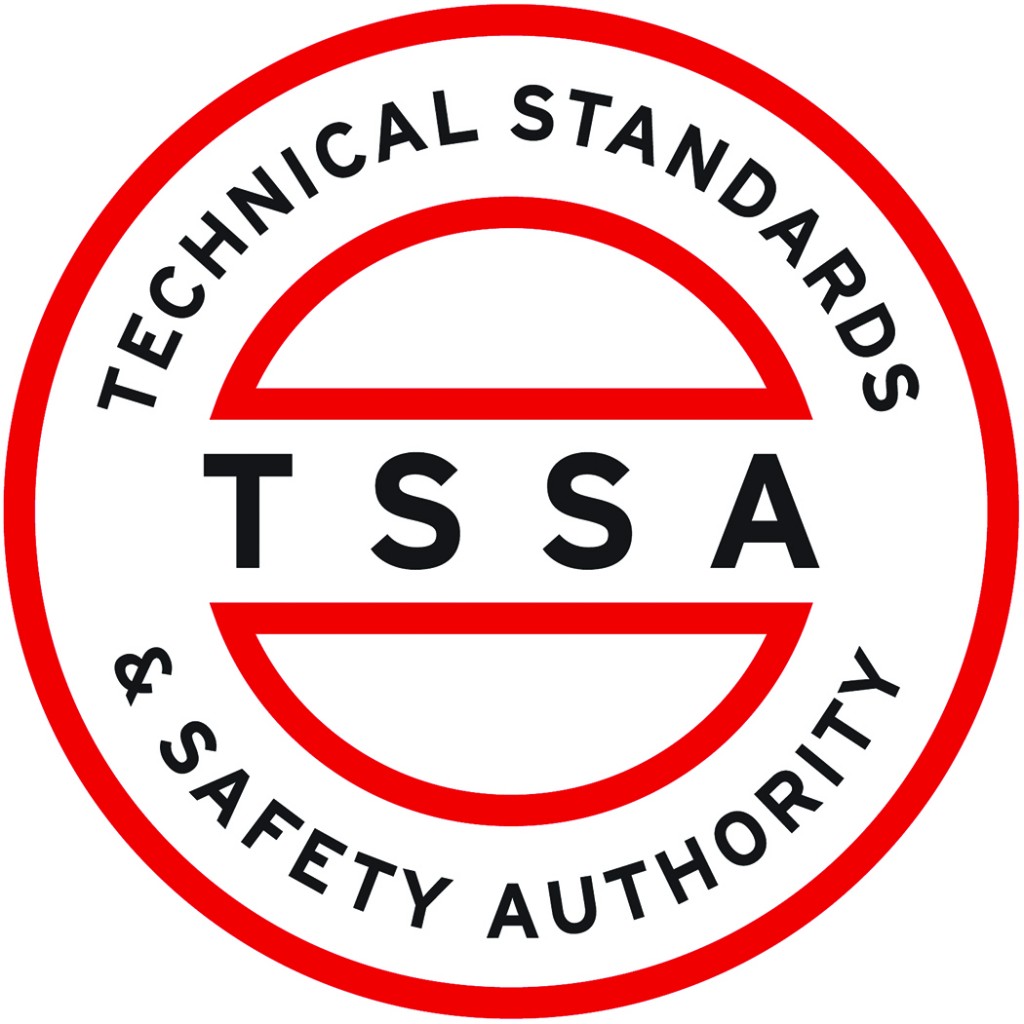PM Training consists of a combination of theoretical and practical (on the job) training. This page provides the general information for Petroleum Mechanic Certification including license categories. You can then chose the links below for detailed information on the OPCA Home Study program and our training partners.
Individuals have two options for theoretical training, either through the OPCA or through one of our Training Partners. Please review the information on this page then proceed to one of the training option buttons below.

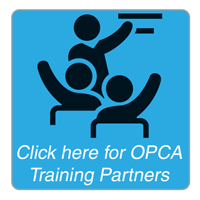
OPCA Course Policies
Home Study Registration Requirements
- Students must register for a Home Study course at least 30 days prior to the Review/Exam session they plan to attend.
- Students must pre-register for review/exam sessions. Course purchase does not automatically enroll students in the sessions.
- All courses require approximately 35-40 of study time (based on individual’s study habits)
Course Completion Deadline
Students have one year to complete their course including attending their review/exam session. Students that do not complete their course within the deadline are subject to the following:
- Students will not be notified of future review/exam dates.
- After one year of registration date but within two years, reinstatement fee of $200.00, payable prior to reinstatement and admittance to future review/exam sessions.
- After two years from date of registration, student forfeits course and must re-register.
Certification Requirements
Individuals must complete a training course, successfully complete the TSSA certification exam and complete the required practical experience (hours/as outlined below) in order to obtain certification.
Petroleum Mechanic License Qualifications
PMH – PETROLEUM MECHANIC HELPER: PREREQUISITE SAFETY & ENTRY LEVEL ORIENTATION
A person who holds a PMH license may without supervision, maintain pumps, including replacing nozzles, spouts, hoses, breakaways, filters and belts and may access, contain and clean up spills and leaks.
The PMH license is a prerequisite for individuals new to the industry and/or who do not have the required experience. Once the trainee completes the PMH certification course, they may proceed to PM1, PM2, and/or PM3 training depending on the work they will be performing.
For example: An individual who wants to install and remove underground storage tanks is required to obtain their PMH and PM2 license.
The PMH course includes both written and practical exam components (practical evaluation approximately 20 minutes in length). Practical evaluation consists of the participant demonstrating the proper procedures in performing minor maintenance on a fuel pump or dispenser.
PM1 – SERVICE AND MAINTENANCE
A person who holds a PM1 license may, without supervision, service and maintain petroleum equipment and systems, and accessories essential to their operation.
- Install and remove suction pumps and related systems
- Repair and maintain suction pumps and related systems.
- Repair and maintain submersible pumps, dispensers and related systems.
- Install, remove, repair and maintain bulk handling equipment
- Practical Experience hours required: 1000 hours – under the supervision of a PM1 license holder
PM2 – UNDERGROUND INSTALLATION
A person who holds a PM2 license may, without supervision, install, remove, alter, test, service and maintain any type of underground installation and the equipment and accessories essential to its operation.
- Install underground tanks
- Remove underground tanks
- Install petroleum transfer systems
- Repair and maintain systems for detecting leaks and monitoring tanks
- Install and remove submersible pumps
- Practical Experience hours required: 2000 hours – under the supervision of a PM2 license holder
PM3 – ABOVEGROUND INSTALLATION
A person who holds a PM3 license may, without supervision, install, remove, alter, repair, test, service and maintain any type of aboveground installation and the equipment and accessories essential to its operation.
- Install aboveground tanks
- Remove aboveground tanks
- Repair and maintain systems for detecting leaks and monitoring tanks
- Install, remove, repair and maintain bulk handling equipment
- Practical Experience hours required: 500 hours – under the supervision of a PM3 license holder
Practical Requirement for Certification
The practical skills sign-off document serves as a permanent record of work performed. It is the responsibility of the participant to arrange to work with a licensed petroleum mechanic. OPCA members are often willing to assist a trainee in completing their practical experience requirement by allowing them to work on their site in lieu of wages. Companies who need to train employees but do not have licensed petroleum mechanics may also hire an OPCA member contractor as a supervisor on their own site on a sub-contract basis. To find a licensed petroleum mechanic, refer to OPCA’s Member Directory located on the OPCA website.
Practical Requirement Deadline
TSSA outlines deadlines for completing the practical experience requirement once a students completes their training program. Please refer to the TSSA Petroleum Mechanic Training policies (link below) for information.
The OPCA is a TSSA Accredited Training Provider
View TSSA Petroleum Mechanic Training Policies – or visit their website at www.tssa.org
Course Return Policy
Course refunds are provided as follows:
Within 60 days of course purchase
Course fee less $100.00 administration fee. Return of materials not applicable.



